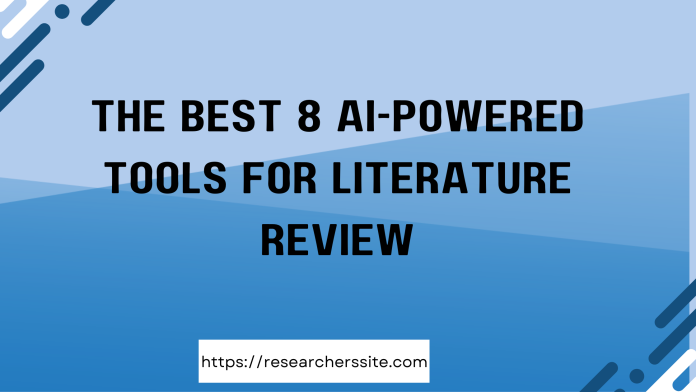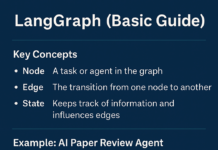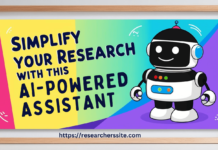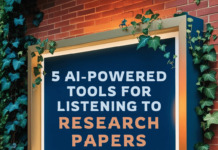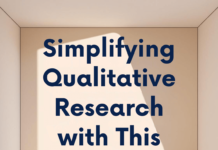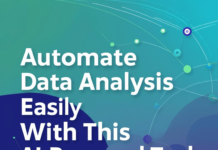In this blog post, I will explore the benefits of using best AI-powered tools for literature review. Literature survey is a crucial step in any research work, but it can also be a daunting and time-consuming task.
You have to find, read, and evaluate hundreds or thousands of research papers, synthesize the existing knowledge, and identify the gaps and opportunities for your research.
Fortunately, there are some AI-powered apps that can help you with literature survey and make it easier and faster. In order to automate the tasks such as searching for articles, identifying relevant papers, and summarizing papers the apps use the artificial intelligence.
Besides, this saves you a significant amount of time and effort. It lets you focus on the more creative and strategic aspects of your research work.
The Best 8 AI-Powered Tools for Literature Review
Here are some of the best 8 AI-powered apps for literature review that you should try:
Research Rabbit
Research Rabbit is an AI-powered app that helps researchers find, organize, and analyze research papers.
It is a free tool that can be used by anyone, regardless of their research experience.
Research Rabbit uses AI to scan the web for relevant scholarly articles. In addition to that the AI-based tool allows you to save and organize articles in your own personal library.
To use Research Rabbit, you first need to create an account. Once you have created an account, you can start searching for research papers. You can search by keyword, topic, or author.
Once you have found the papers you are interested in, you can add them to your collections. Collections are a way to organize your research papers. You can create as many collections as you need.
Research Rabbit- Link
Rayyan
Rayyan is an AI-powered app that helps researchers conduct systematic literature reviews.
A systematic literature review is a comprehensive research process that involves identifying, evaluating, and synthesizing all the available research on a particular topic.
It helps you work quickly through even your largest reviews. It lets you de-duplicate, screen, and organize references, as well as collaborate with your team and generate reports.
You can use Rayyan to import references from various sources, apply inclusion and exclusion criteria, assign labels and ratings, and export your data for further analysis.
Rayyan- Link
Scholarcy
Scholarcy is an AI-powered app that can help you with your academic reading. It can automatically summarize articles, create flashcards, and generate bibliographies.
Scholarcy can also help you find related research and identify key information in articles.
In order to use Scholarcy, you first need to create an account. Once you have created an account, you can start adding articles to your library.
Additionally, you can add academic papers from a variety of sources like Google Scholar, PubMed, and your personal library.
Once you have added scholarly articles to your library, you can start using Scholarcy’s features. To summarize an article, simply click on the “Summarize” button.
Scholarcy will then generate a summary of the article in a few seconds.
Overall, Scholarcy is a valuable tool that can help you with your academic reading. If you are looking for a way to save time, improve your understanding, and increase your productivity, Scholarcy is a great option.
Scholarcy- Link
Lateral
Lateral is an AI-powered app that can help you with your academic research. It can help you find relevant research, organize your findings, and write better papers.
Lateral uses artificial intelligence to analyze research papers and identify key concepts, relationships, and trends. This information can then be used to help you find relevant research, organize your findings, and write better papers.
It helps you organize, search, and save information from collections of articles. You can import articles from various sources, create tags and notes, and use natural language queries to find specific information in your collections.
You can use Lateral to manage your literature review workflow, keep track of your sources and citations, and access your information anytime and anywhere.
Lateral – Link
Scite
Scite is a free, open-source AI-powered app that helps researchers better discover and understand research articles. Scite does this by providing Smart Citations, which display the context of a citation and describe whether the article provides supporting or contrasting evidence.
To use Scite, simply go to the Scite website and sign up for an account. Once you have an account, you can start searching for research articles. Scite will display a list of articles that match your search criteria, and you can then click on an article to view its Smart Citations.
You can use Scite to assess the quality and reliability of the literature, avoid citing unreliable sources, and find evidence for or against any hypothesis.
Scite- Link
Consensus
If you are looking for a way to quickly and easily find answers from scientific research, you might want to try Consensus AI, a new search engine that uses artificial intelligence to extract and distill findings directly from peer-reviewed studies.
Consensus AI is a powerful tool that can help you find evidence-based answers from scientific research in a fast and easy way.
You can also use various features to refine your search and explore more options. Consensus AI can help you save time and effort in finding reliable information from scientific research.
Consensus- Link
Semantic Scholar
It is a free AI-powered academic search engine that helps you find relevant academic papers faster and easier than traditional methods. It uses natural language processing and machine learning to understand your research needs and provide you with smart filters, citation analysis, and key insights from papers.
You can use Semantic Scholar to discover the most influential and recent scientific literature in your field, compare different methods and results, and track the impact of your own publications.
Semantic Scholar- Link
RAx
It is an AI-powered reading assistant that helps you organize, annotate, and collaborate on your research. It helps you fine-tune your literature search, generate summaries, highlight and compare ideas, and share and discuss literature with your team.
You can use RAx to create different projects for your research topics, import articles from various sources, annotate them with notes and comments, and get personalized suggestions for further reading.
RAx Literature Review and Critical Analysis Tool- Link
Iris AI
It is an AI-powered research assistant that can help you with tasks such as finding relevant articles, summarizing articles, and generating research ideas.
A comprehensive platform for all your research processing: Smart search and a wide range of smart filters, reading list analysis, auto-generated summaries, autonomous extraction and systematizing of data
Iris AI -Your Research Workspace- Link
These are some of the best 8 AI-powered apps for literature review that can help you save time and effort, improve your understanding and writing skills, and produce high-quality research. Try them out today and see how they can supercharge your literature review process.
It is important to note that AI-powered apps are not a replacement for human judgment. However, they can be a valuable tool for helping you to find relevant research articles, identify important concepts, and track the development of research over time.
If you are interested in trying one of these apps, I encourage you to visit their websites and sign up for a free trial. You can also read reviews from other users to get a better idea of which app is right for you.
If you want to supercharge your literature review with AI, you should try out these 8 apps today. They are easy to use, affordable, and reliable. They will transform your literature review process and help you achieve your research goals faster and easier.
Don’t wait any longer. Start using these AI-powered apps for literature review today and see the difference for yourself. You will be amazed by how much they can help you with your research.
I hope this blog post has been helpful. If you have any questions, please feel free to leave a comment below.


